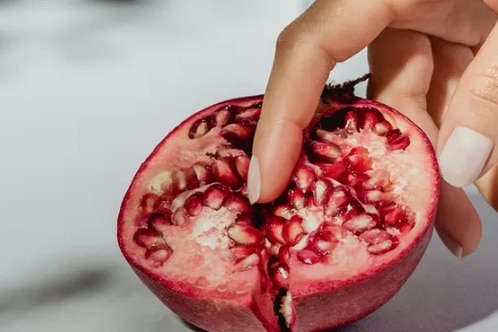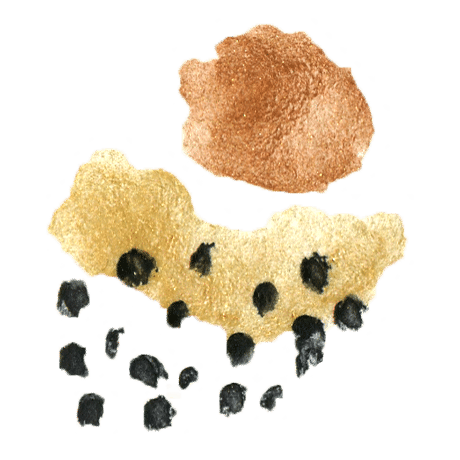I am a vaginapractor. If this is the first time you’re hearing that term, believe me, you’re not alone. It was a long and winding path that led me to this profession and where I am today—a path that aims to alter the future of women’s health, awaken our inner healers and our inner authority, and change the texture of what real empowerment looks like.
How I became a “vaginapractor.”
I am awed every single day in my “office.” (I put office in quotation marks because I work in a geodesic dome in the middle of former avocado and orange groves.) With gloves on, I sit on my wide Rolfing table. I watch the black crows fly across the blue sky, while my gloved hands rest on a woman’s pelvic bones. I listen to this woman tell me the story of her pelvis, or her uterus, or her vagina. I listen to her bones and her organs, too.
If you would have asked me when I was a passionate activist undergraduate at an Ivy League school if I would someday be spearheading a radical embodied movement for pelvic and sexual health, while working in a dome, I would not have been able to foresee it. I was headed for law or policy school; I was headed to sit at the big tables and effect prison or education reform. But after I had excelled for so long in academic environments, lauded for my intellectual capacity, my spirit yearned for some other kind of contact with life. Off I went to NYC to wait tables and dance and eventually devote my life to yoga practice, yoga teaching, and structural integration.
My personal experience with postpartum healing.
Ten years later, I became a mother. The floor of my pelvis tore, and I was shocked that none of my yoga tools, none of my bodywork knowledge was able to touch or help the pain I was experiencing on so many levels. This was curious. I had had the BEST yoga teachers in the world. How had this facet of womanhood been completely left out of my body-mind-soul consciousness tools?
I searched “alternative postpartum care” and “holistic postpartum healing,” and all I found were hundreds of thousands of entries about “postpartum depression.” I felt depressed, but I knew it wasn’t a mental health problem I was having. I was injured, in the most intimate place in my body, and trying to heal while adjusting to the identity overhaul that is becoming a mother, which I had completely underestimated. Eventually I found my mentor, Ellen Heed. She was a “sexological bodyworker,” which was a completely foreign term as well as practice for me. She was doing a study of postpartum scar tissue and asked me to be a part of it.
After three sessions, my back and SI joint pain were gone, my abdominals reknit themselves, my scar tissue had dissolved, and my hemorrhoids reabsorbed. After I became part of this community, almost immediately women started telling me their stories—their tailbone that always hurt since their first child, the doctor who cut them without asking, their periods so painful that they passed out, how they had never had an orgasm. I heard the quiet confessions, the mounting frustrations, and the exasperation.
Women need a lot more support than they’re getting.
I often asked women if they had gotten any help. The resounding “no” was my call, and I started becoming more interested in helping these women. I realized I had found the black hole of women’s health that is the postpartum period, where women in the United States get little to no support and are profoundly altered physically and mentally and emotionally. We see the outcome of this—depletion, loneliness, isolation, dissolution of a relationship, and now I (with my mentor) had a piece of the solution.
Over the next few years, I got official training. I studied sexological bodywork, I completed somatic experiencing trauma resolution training, and I studied Pam England’s birth story medicine, all the while serving women who suffered injuries and trauma while giving birth. Additionally, women started to come who realized that their bodies and minds were not coordinated when it came to sex. In their mind, they did not believe what they were taught in their religion growing up, but their body was reacting as if they did. They trusted their current partner, but their body was pushing him or her away.
Today I work with women who come from all over the world. Women are ready to learn about their own body and their own sex, not from their doctor, not from their lover, but from a neutral witness, who can listen and see all of them—reflect their wholeness and help them make sense of their experience.
My work is helpful for all women—not just moms.
It is my great honor to be with women in this space of intense intimacy. I have worked with women who have never been penetrated before and want the experience to happen with me in a neutral setting so that they can safely process what arises without the pressure of caretaking a partner. I have worked with women who have never once experienced pleasurable sex. I have worked with women who are confused about their sexuality and what has changed since becoming mothers. I have worked with women who were empowered in every area of their life, and when it came to childbirth, they felt like they lost everything.
I have also worked with women who are curious about clitoral orgasms, or exploring how to deepen their self-pleasure practice, or who just want an informed walkabout of their own anatomy. They want to know, “Where is my G-spot?” “Why do I have to fantasize about my ex to have an orgasm?” They want answers to questions, and they haven’t known whom to ask. Intellectually knowing where your cervix is and having it gently touched and named (without being scraped or prodded) is a radically different experience.
Every woman who walks into my office is displaying incredible bravery. A woman claiming her sexual health or pelvic health, claiming a right to understanding and pleasure, is a radical act. My job as a “vaginapractor” and the many women choosing to step into my office represent the next wave of feminism that includes our cycles, our biology, and our pleasure—activism that I wholeheartedly champion and that I think we can all get behind.


